
The joy of discovery spurred me to learn more. Who knew my road would lead me to Michigan? Some 40 years later in northern Michigan, I happened upon a fossil I had never seen. Little did I know of the wonder and amazement of finding armor-plated fish with a hammer and chisel.
PLACODERM TYPES
Placoderms are some of the best-known fish of the ancient seas because of their hard dermal plates. “Placo” means plate and “derm” means skin. These fish had hard plates on their head section and the part of the thorax just behind the head. They also sported large flat bony plates. Since soft tissue generally does not fossilize, these plates are usually the only evidence we are able to find. They were a group of now-extinct prehistoric jawed fish that were abundant in ancient seas.
The Placoderms occupied two major subgroups: Arthrodires and Antiarchs.
Arthrodire Placoderms are the most well-known and abundant Placoderm fossils found. They are known for a movable joint between the head and body. In fact, Arthrodire is Greek for “jointed neck.”
Antiarchs are less common and more flattened. The Antiarchs also generally had armor-plated pectoral fins and a “box-shaped” head.
DIVERSE PLACODERMS
This story is from the September 2023 edition of Rock&Gem Magazine.
Start your 7-day Magzter GOLD free trial to access thousands of curated premium stories, and 9,000+ magazines and newspapers.
Already a subscriber ? Sign In
This story is from the September 2023 edition of Rock&Gem Magazine.
Start your 7-day Magzter GOLD free trial to access thousands of curated premium stories, and 9,000+ magazines and newspapers.
Already a subscriber? Sign In
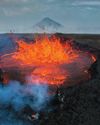
THE BRIGHT SIDE OF VOLCANIC ROCK
As a mineral resource, volcanic rock is decidedly short on glamour.
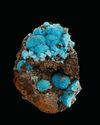
The Other Copper Minerals
12 Lesser-known Collectible Species

MINERAL COLLECTING -AND ROCK & GEM
Evolving Together FOR 54 YEARS
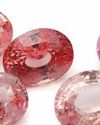
Gemstone Trends
A Look Back at 2024 & What to Expect in 2025
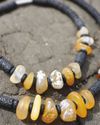
How to Make a GEM BEAD NECKLACE
No Lapidary Experience Needed!
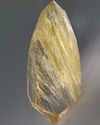
Framing Nature's Art
Faceting Rutilated Quartz for Beginners
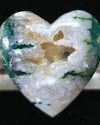
BEDAZZLED BLUE SEAM AGATE
More than several centuries ago, mining was the profession most often seen as befitting of men.
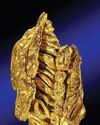
ROCK & GEM FIELD GUIDE:
Spinel is a captivating gemstone with a rich history of being mistaken for gems like ruby and sapphire.
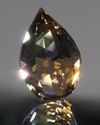
SNAKE SCALE DROP 1.5:1
This Faceting Focus is revisiting the briolette gemstone design because of its popularity with independent and hobby gemstone faceters.
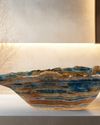
STONE CHIC
How Earth-Inspired Decor Brings Comfort to our Home